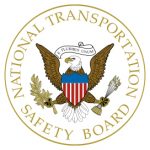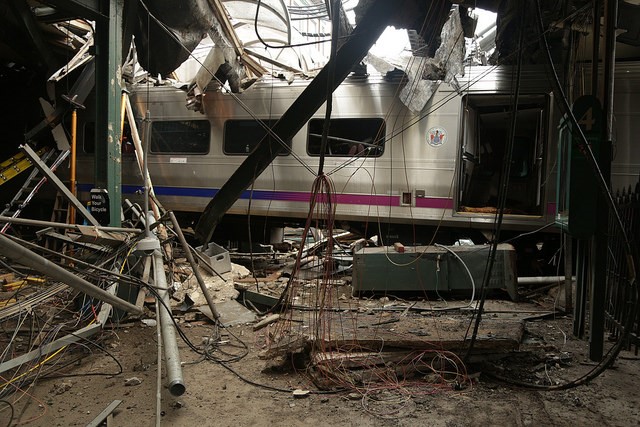
Rubin has 15 years of experience with the New Jersey Department of Law and Public Safety and “will help employees who are victims of assault navigate the criminal justice system at no cost to the employee, and work with prosecutors to see that assailants face the full sentences allowable by law,” NJT said in the release.
“The creation of the Employee Court Advocate position confirms NJ Transit’s unwavering commitment to ensuring the safety and well-being of our employees,” said NJT President and CEO Kevin Corbett. “I am confident Michael Rubin will make a real difference in the lives of our front-line employees who are forced to navigate an unfamiliar legal system and ensure that assailants are prosecuted to the fullest extent of the law.”
Rubin’s role includes meeting with NJT conductors and bus operators who have been assaulted to review their cases and help them understand their legal rights. When an employee is required to appear in court, he will accompany them to court to ensure that their rights are protected and prosecutors pursue appropriate charges and sentencing, NJT said.
Click here to read the full release from NJT.
Tag: NJT
According to an analysis done by northjersey.com, Metro-North, New Jersey Transit (NJT) and the Long Island Rail Road (LIRR) have been fined hundreds of thousands of dollars since 2013.
Before the companies’ lawyers negotiated for lower fines, Metro-North had been assessed more than $1 million in penalties and NJT more than $700,000. After the fines had been negotiated down, Metro-North paid $859,375; NJT paid $576,175 and LIRR paid $131,725.
Fines were assessed for safety violations involving track, signals, locomotives, equipment and train crews; as well as for alcohol and drug testing, employee hours of service, and railroad operating practices.
Northjersey.com notes that alcohol and drug testing violations — of which Metro-North had the most infractions — does not necessarily mean that crew members are reporting to work under the influence.
Click here to read the full analysis from northjersey.com.
New Jersey Transit (NJT) is claiming sovereign immunity after a victory in the case Karns v. Shanahan 18 months ago, which upheld NJT’s argument that it is a part of the state of New Jersey, not an independent agency, and as such is not responsible for employee injuries.
In a second, unrelated case in the 3rd Circuit Court of Appeals, an $824,000 ruling in favor of an injured NJT worker was overturned using that argument in late January. As a result, the state’s attorney general has requested that many workers’ injury lawsuits against the carrier be dismissed.
Representatives from SMART Transportation Division Designated Legal Counsel, including Rail Safety Coordinator Larry Mann, say that these rulings create a dangerous precedent and effectively nullify federal protections that all other railroad workers fall under.
NJT argues that it falls under the 11th Amendment of the U.S. Constitution and has sovereign immunity, meaning that its workers are entitled to the state’s workers’ compensation program.
However, Mann told the Courier Post that this is not the case, citing a U.S. Supreme Court ruling in 1917 where it was determined that railroad workers have no protections under state workers’ compensation laws because the Federal Employers Liability Act (FELA) preempts state laws.
“We’re not asking for anything new or novel,” SMART TD Designated Legal Counsel Robert Myers said in a hearing of the state’s Assembly Transportation and Independent Authorities Committee last week. “It’s the same thing as every other railroad in the country, and it’s all about safety.”
Assemblyman Dan Benson, the chairman of the Assembly Transportation and Independent Authorities Committee, has sponsored a bill (A4689) that would waive NJT’s claim to sovereign immunity. The bill is still in committee, but co-sponsors told NJTV News that they plan to fast-track it.
“It’s our responsibility here on the Transportation Committee and as public servants to make sure that we’re not leaving our workers in an unsafe environment without protections, and for things that extend to the general public,” Benson said in a committee hearing.
“It is vitally important that this legislation be enacted. Otherwise, there will be a crisis impacting all railroad employees injured or killed in this state,” SMART TD N.J. State Legislative Director Ron Sabol said at the hearing.
Click here to read more from the Courier Post or from NJTV News.

The Sept. 29, 2016, accident on the New Jersey Transit railroad at Hoboken, New Jersey, killed one person, injured 110, and resulted in major damage to the station. The Jan. 4, 2017, accident on the Long Island Rail Road at the Atlantic Terminal in Brooklyn, New York, injured 108 people. Both accidents involved trains that struck end-of-track bumping posts and crashed into stations.
The NTSB found the two accidents had “almost identical” probable causes and safety issues. The board also determined that these safety issues were not unique to these two properties, but exist throughout the country at many intercity passenger and commuter passenger train terminals.
When operating a train into a terminating track, the engineer’s actions, or lack thereof, solely determine whether the train stops before the end of the track. According to the Federal Railroad Administration (FRA), there are currently no mechanisms installed in the U.S. that will automatically stop a train at the end of the track if the engineer is incapacitated, inattentive or disengaged. Some railroads have overspeed capabilities, including New Jersey Transit and the LIRR. However, as shown in these two accidents, once the engineer slowed the train to the prescribed speed, the system did not stop the trains before they reached the end of the track.
In addition to recommending safety-sensitive personnel be screened for obstructive sleep apnea, the board recommended the use of technology, such as positive train control (PTC), in terminal stations and improving the effectiveness of system safety program plans to improve terminal operations. The NTSB made two recommendations to New Jersey Transit, and the Metropolitan Transportation Authority (the parent company of the Long Island Rail Road) and two to the FRA.
“Today’s new recommendations, if acted upon, have the potential to eliminate end-of-track collisions,’’ Sumwalt said. “That translates to protection for passengers on trains, and for people standing on terminal platforms.”
The complete accident report will be available in several weeks. The findings, probable cause, safety recommendations, Chairman Sumwalt’s prepared remarks and PowerPoint presentations used in a board meeting are all available at https://go.usa.gov/xnscj.
The New Jersey Transit Hoboken accident docket, containing more than 1,100 pages of supporting factual material, is available at https://go.usa.gov/xnAGJ.
The Long Island Rail Road Brooklyn accident docket, containing more than 1,400 pages of supporting factual material, is available at https://go.usa.gov/xnAGe.

Last year, NJT had the most accidents among the 10 biggest U.S. commuter railroads. Federal regulators have also issued safety-violation notices to the railroad in recent months.
Click here to read more from BloombergPolitics.
In light of the deadly NJT September 29th transit crash in Hoboken, NJ, that killed one person and injured more than 100, U.S. Senator Cory Booker, the top-ranking Democrat on the U.S. Senate subcommittee that oversees passenger rail safety, and U.S. Senator Bob Menendez, the top-ranking Democrat on the U.S. Senate mass transit subcommittee, submitted a letter to U.S. Department of Transportation (DOT) Secretary Anthony Foxx , calling for DOT to investigate the long list of safety violations, accidents and apparent systemic failures that have plagued the NJT in recent years. The NTSB is currently investigation the crash. Read the complete article posted in NJ.com, here.
The Times-Herald RecordOnline reported that on October 21, 2016, a joint state and federal legislative commission will begin hearings with New Jersey Transit (NJT) administrators in the wake of the September 29 Hoboken, NJ transit crash that injured more than one hundred and killed Fabiola Bittar de Kroon, a young mother and lawyer who had recently moved to New Jersey with her husband and one-year-old daughter. Read the complete article here.
The Federal Railroad Administration (FRA) says they began an audit of New Jersey Transit (NJT) in June after noticing an increase in safety violations on the railroad. An FRA official told The New York Times that the agency had issued a series of violations to NJT after the audit was completed. The audit is now being reviewed as part of the investigation of the NJT crash in Hoboken, N.J.
Read more from The New York Times.
Investigators from the National Transportation Safety Board (NTSB) began the task of gathering evidence to determine the cause of yesterday morning’s deadly New Jersey Transit crash that injured 114 and killed a woman who was standing on the platform at the busy hub in Hoboken, New Jersey. According to a CNN report, NTSB officials have retrieved the train’s event recorder and will soon interview engineer Thomas Gallagher, who was treated and released from the hospital yesterday. The sharp increase in railway accidents underscores the need to hasten implementation of Positive Train Control (PTC) systems and mandated two-person crews on all trains. Read the latest article from CNN, here.
Photo courtesy of CNN.com.
The New York Times reported that a New Jersey Transit train has crashed into a major Hoboken, NJ transit hub during rush hour. A transportation official confirmed that one person has died and many others have been injured. Urban Search and Rescue squads are at the site. No details yet on exact numbers of deaths or injured, or the cause of the crash. Read the story here.
